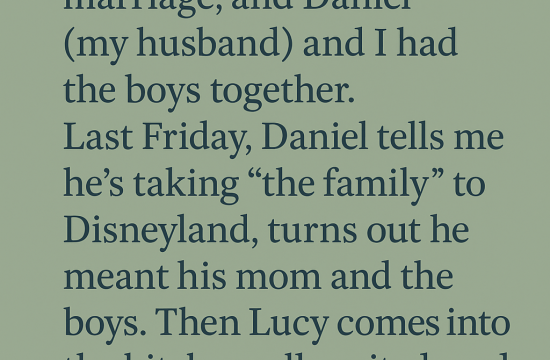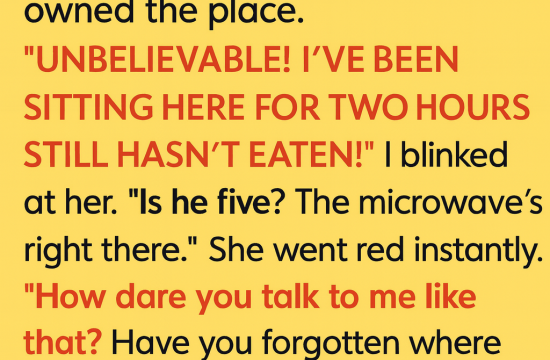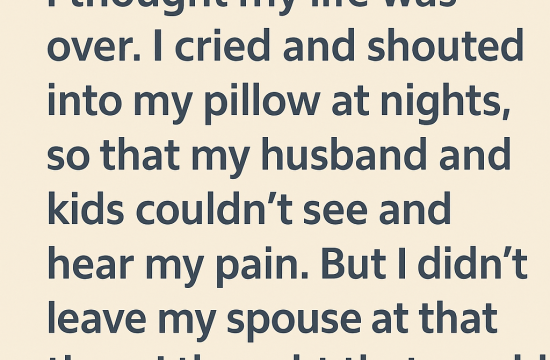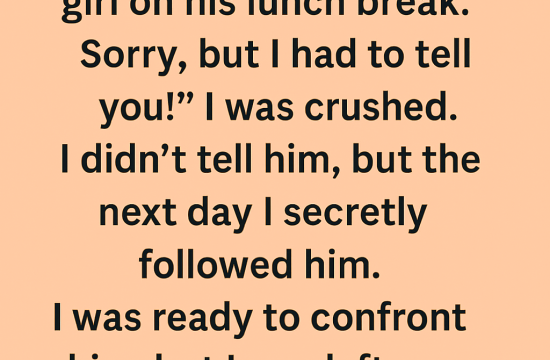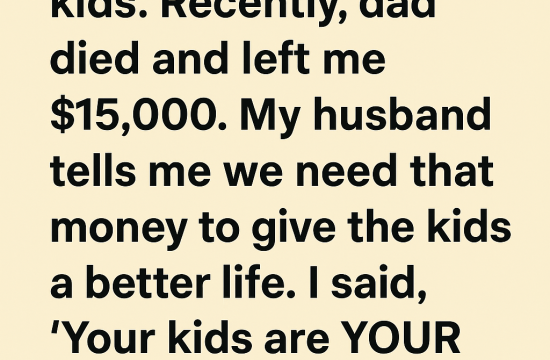James dismissed his father’s generous wedding gift as “cheap,” pursuing a lavish lifestyle with Emily that ultimately left them broke and returning home. What followed was a humbling journey of hard work and gratitude.
When James announced his plans to marry Emily, his long-time girlfriend, I was over the moon. As a father, you dream of the day your child finds someone to share their life with, and here it was, right before my eyes.
“Congratulations, son! I knew this day would come,” I said, pulling James into a bear hug. His face lit up with a smile, and for a moment, everything felt perfect.
Emily, standing beside him, blushed and showed off her engagement ring. “We’re so happy, Dad. We can’t wait to start our life together,” James added, his eyes shining with excitement.
I wanted to help them start on solid ground, so I made a promise that came from the deepest part of my heart. “Listen, James, I want to give you and Emily a gift, a significant one. I’ll give you as much as I can for a down payment on your new home.”
James looked at me, surprised. “Dad, you don’t have to—”
“I want to,” I interrupted, raising my hand. “I know it’s not a fortune, but it’s a substantial amount for me, given my modest savings.”
The months flew by, and the day came when I handed over the check with pride. I was beaming, imagining their gratitude and excitement. “Here it is, son,” I said, handing James the envelope. “This will help you start your life together.”
James opened the envelope and looked at the check. His smile faded, replaced by a frown of disbelief. “Dad, is this a joke?” he asked, his tone suddenly cold.
My heart sank. “What do you mean, James? It’s the best I could do. I hoped it would help.”
“This is nothing!” James exclaimed, shaking the check in my face. “This won’t even make a dent in the housing market in Colorado. It’s so cheap, Dad. I thought you cared more about my future than this.”
I stood there, stunned and hurt. “James, I’ve worked hard to save this money. It’s a significant amount for me. You and Emily can add some of your savings and—”
“Forget it,” James snapped, cutting me off. “We’ll never be able to buy a house with this.”
I watched as he stormed out, leaving me with a mix of anger and sadness. How could he be so ungrateful? I had hoped this gesture would bring us closer, but it seemed to have done the opposite.
That evening, I sat down with my wife, Linda, and shared what had happened. “I can’t believe he reacted like that,” I said, my voice trembling. Linda sighed, placing her hand on mine. “Give him time, Frank. He’s young and stressed about the future. Maybe he’ll come around.”
But James didn’t come around. Instead, he drifted away. He stopped visiting us on holidays, even though he and Emily had enough money for vacations, dining out at expensive restaurants, and buying luxury items.
It hurt to see him live lavishly while ignoring us, especially knowing how hard I had worked to give him that money. Karma has a way of coming full circle, and James was about to learn that the hard way.
Months later, Linda and I continued with our modest lives while James and Emily chased after a luxurious lifestyle that seemed increasingly out of reach.
“Did you hear about the house they bought?” Linda asked one evening as we sat in our cozy living room.
“Yes, a grand place,” I replied, bitterness creeping into my voice. “They can barely afford it.”
The housing market was booming, and James and Emily were confident they’d struck gold. But what goes up often comes crashing down.
The bubble burst. Their once-grand home plummeted in value. The mortgage payments became suffocating, forcing them to sell off their luxuries to keep afloat.
One evening, as Linda and I were finishing dinner, the phone rang. It was James. His voice was frantic, trembling. “Dad, I need your help.”
“What’s wrong, James?” I asked, my heart pounding with concern and lingering resentment.
“We…we made a mistake. We invested our remaining savings in a scheme promising high returns. It was a scam, Dad. We’ve lost everything,” he confessed, his voice breaking.
I felt a rush of emotions: anger, sadness, and even a tinge of vindication. But overriding all that was concern for my son. “James, come home. We’ll figure this out together,” I said, keeping my voice steady.
When James and Emily arrived, they were shadows of their former selves. Gone were the designer clothes and confident smiles. They stood before us, humbled and broken, with nothing but the clothes on their backs.
“Welcome home,” Linda said softly, pulling them into a hug. I joined in, feeling the weight of the situation.
As we sat in the living room, James looked around, his eyes filled with regret. “I’m sorry, Dad. I was so wrong.”
I nodded, my throat tight. “Let’s not dwell on the past. We have to move forward. But know this, James: the road ahead won’t be easy.”
That night, as they settled into the guest room, Linda and I stayed awake talking. “What do we do now?” she whispered.
“We help them rebuild,” I replied. “But we don’t make it too easy. They need to learn the value of hard work and gratitude.”
The next morning, I found James in the kitchen, making coffee. He looked up, weary but determined. “Dad, I’m going to find a job. Whatever it takes, I’ll make things right.”
“Good,” I said firmly. “It’s time you learned what it means to truly work for something.”
Days turned into weeks, and James threw himself into finding work. He took on multiple jobs—waiting tables, warehouse shifts, odd handyman tasks. Emily did the same, standing by his side through thick and thin.
Every dollar they earned became a lesson in humility. Slowly, they began to appreciate the simple joys of life.
“Remember when we used to eat out at fancy restaurants every weekend?” Emily said one evening, stirring a pot of stew on our stove.
James chuckled, setting the table. “Yeah, and now I wouldn’t trade this for anything. There’s something special about home-cooked meals and family time.”
I smiled, pride swelling in my chest. They were finally learning the value of hard work and gratitude—lessons I had hoped they would one day understand.
As their savings grew, James and Emily managed to rent a small apartment. It wasn’t luxurious, but it was theirs. They lived within their means, valuing every dollar and every effort it took to earn it.
One evening, as we sat on their modest balcony, James turned to me with a thoughtful look. “Dad, I finally get it. Entitlement and greed led me down a dark path. But gratitude and humility—those bring real happiness.”
I nodded, my voice thick with emotion. “I’m proud of you, James. You’ve come a long way. The real gift is understanding the value of what you have, not just what you want.”
Emily joined in, her voice soft but resolute. “We’ve realized life isn’t about material wealth. It’s about love, support, and the simple joys we used to overlook.”
James squeezed her hand. “You and Mom taught us that. And now, we’re ready to rebuild our lives with those lessons in mind.”
Through hardship, James and Emily discovered what my modest gift had truly meant: not money, but the foundation of gratitude and resilience. Our once-strained relationship had grown stronger, built on mutual respect and understanding.
In the end, karma had taught James a powerful lesson: entitlement leads to downfall, but humility paves the way to true happiness. As the sun set that evening, I knew the future, though uncertain, held promise—and this time, my son was ready to embrace it.




